Wrist Splints vs Braces: Empower Yourself with the Right One!

Are wrist splints and braces the same thing? If you've ever been confused about which one to choose for wrist support, you're not alone. As women in sports break social barriers and embrace their true potential, they can risk hurting their wrists.
Hand or wrist injuries account for about 25% of all sports-related injuries [1]. Forceful and repetitive hand use are the common causes. This is where sports support comes in. In this article, we'll unravel the wrist support comparison of wrist splints vs braces to help women make the right choice and pursue safely and confidently with their beloved sports.
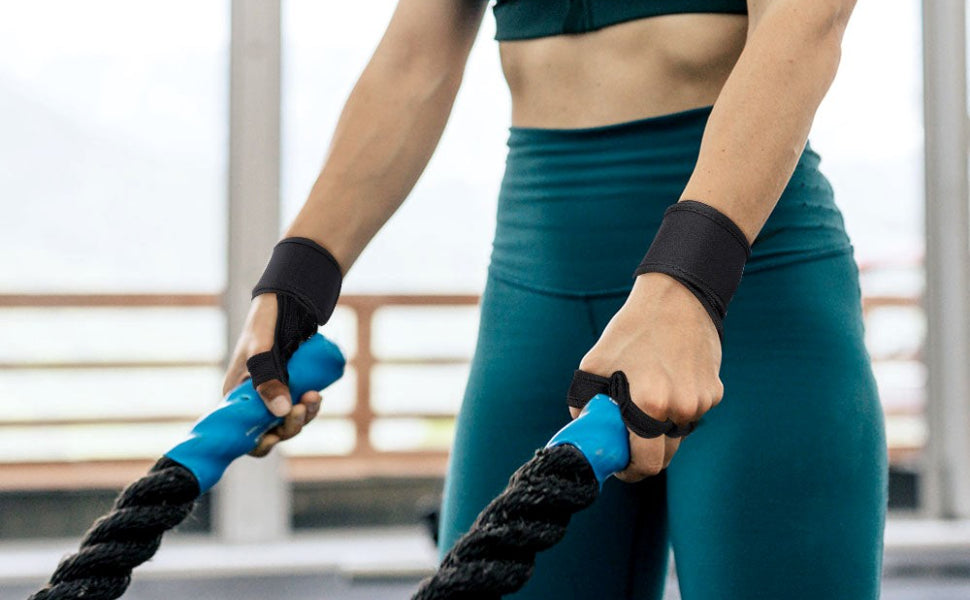
Key Takeaways:
- Wrist splints offer rigid support, while braces provide versatile support and mobility.
- Consider injury severity, mobility needs, comfort, and fit when choosing between splints and braces.
- Specialized options like compression, stabilizing, and hybrid wrist braces cater to different needs.
- Incorporate wrist support, warm-up exercises, hydration, and rest for injury prevention during sports activities.
Wrist Splints vs Braces Comparison: Understanding Wrist Splints
1) Construction and Design of Wrist Splints
Wrist splints often include plastic or metal structures to guarantee immobilization of the joint during the healing process. They tend to be more rigid in design.
2) Features and Functions of Wrist Splints
These splints feature rigid base materials to provide stability and immobilization. In contrast, inner paddings provide comfort and adjustable straps a secure fit, ensuring the wrist stays in place all the time during activities.
3) Intended Use Cases of Wrist Splints
Primarily, wrist splints restrict movement to aid healing, which makes them great wrist stabilization options for severe sprains, fractures, and post-surgery recovery. They're also effective for conditions like carpal tunnel syndrome, where minimizing movement is vital for managing symptoms and preventing worsening damage.
Wrist Splints vs Braces Comparison: Understanding Wrist Braces
1) Construction and Purpose of Wrist Braces
Wrist braces, crafted from breathable materials like neoprene and nylon, together with adjustable straps and sometimes metals, provide compression and support while permitting movement. Versatile in addressing wrist issues, they blend support, stabilization, and prevention in customizable designs.
2) Mechanism of Action of Wrist Braces
Overall, wrist braces aid healing by aligning and reducing stress on the injured wrist, limiting strain, promoting healing, relieving pain, and preventing further damage. Compression reduces swelling and inflammation.
3) Intended Use Cases of Wrist Braces
Wrist braces permit wrist functional movement while providing different levels of support and stability and are suitable for daily use, activities needing wrist flexibility, and injury rehabilitation.
4) Different Types: Compression, Stabilizing, and Hybrid
- Compression wrist brace: Snug fit, improves circulation, reduces swelling.
- Stabilizing wrist brace: Rigid support, restricts movement, enhances protection.
- Hybrid wrist brace: Combines compression and stabilization for customized support.
Wrist Splints vs Braces: Differences Sum-Up
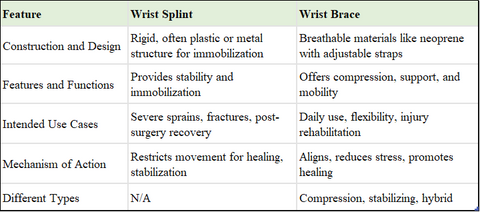
Choosing the Right Wrist Support: Wrist Splints Vs Braces
When to use wrist splint vs brace? There are several factors come into play to ensure you make the right decision:
- Condition Severity: Consult a healthcare professional to gauge the seriousness of your injury. They can guide you on whether a splint or brace is more suitable.
- Mobility Needs:Splints offer greater immobilization, while braces balance support with mobility. Consider your activity level to find the best fit.
- Comfort: Evaluate materials, adjustability, and breathability for comfort during wear. Comfort is key for compliance and effectiveness.
- Fit and Sizing:Follow sizing guidelines closely to ensure proper support without compromising comfort. A secure fit maximizes benefits.
Women's Day Special: 25% Off FIVALI Wrist Braces
1) Compression Wrist Brace: FIVALI Wrist Guards for Sports Providing Support and Ideal Fit - 2 Pack
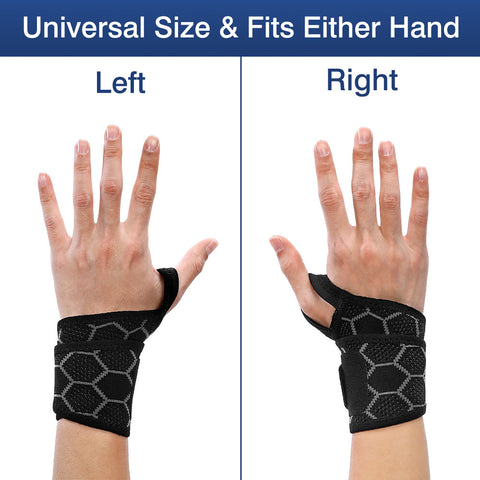
- Featuring Multiple Wrapping Options for Inflammation Compression Relief
- Sturdy Support for Joint Stabilization
- Comfortable And Breathable Materials for All Day Comfort
- Easy To Wear, Providing Effective Support Effortlessly
- The Best Wrist Brace for Arthritis or Daily Sports Activities
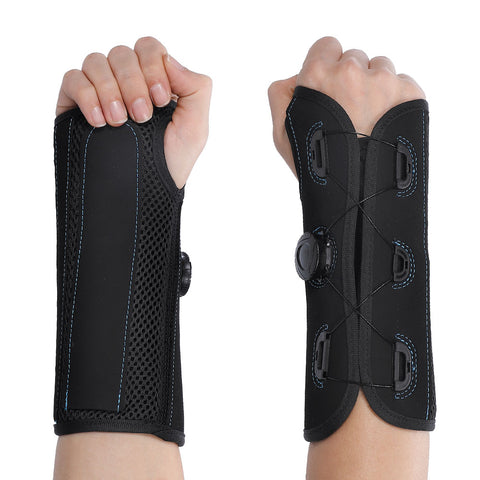
- An Adjustable Rotating Button for Personalized Stability and Support Control
- A Detachable Steel Plate Support for Added Reinforcement
- Breathable Mesh-Like Fabric for Enhanced Comfort
- Suitable For Both Left and Right Hand Use, Providing Versatile Support for All
- One Of The Best Wrist Braces for Sprain, Look No Further!
3) Hybrid Wrist Brace: FIVALI Wrist Wraps for Fitness Support and Slip Resistance - 2 Pack
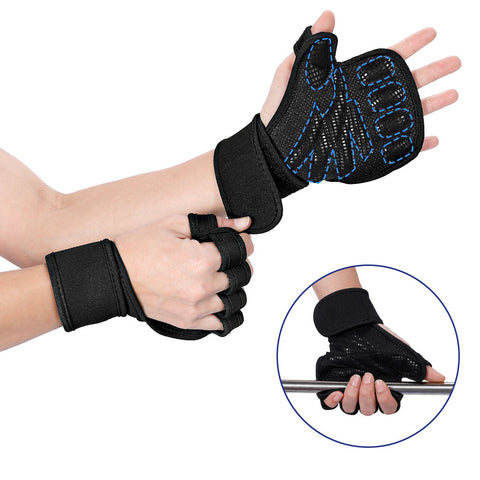
- Ideal For Fitness Enthusiasts
- A Hybrid Design for Pressure Distribution, Compression, Stabilization
- Providing Support and Slip Resistance During Workouts
If you need wrist support during your fitness routines, look no further than the FIVALI Wrist Wraps. Take advantage of the limited-time offer of 25% off FIVALI wrist braces during the International Women's Day celebration. Limited offer from Mar 6th to 8th.
Get your FIVALI Wrist Wraps now and experience the difference for yourself.
Wrist Splints vs Braces: Best Integration Practices into Sports
It's important to incorporate proper wrist support to minimize the risk of injuries and promote optimal performance when engaging in sports activities. Here are some best practices to consider:
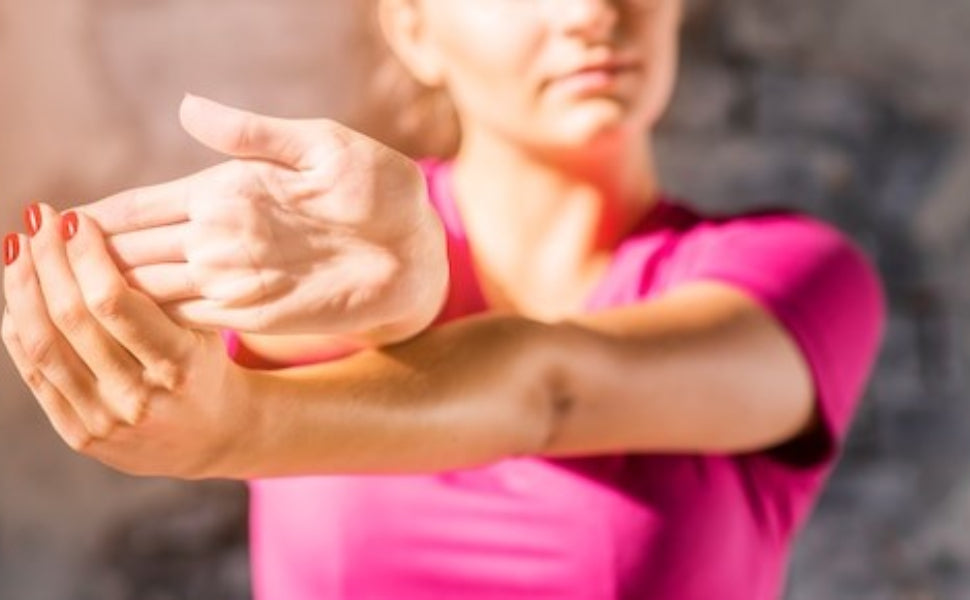
1) Do Wrist-Specific Warm-Up Exercises
Warm up wrists before sports with rotations, flexion, extension, and stretches to enhance flexibility and prevent strains. These exercises help prepare the muscles and joints, increasing flexibility and reducing the risk of strains or sprains.
2) Wear During High-Impact Activities
Wearing wrist supports adds stability and lowers injury risks during high-impact sports with repetitive wrist movements or heavy impact. Listen to your body regarding brace duration to prevent discomfort and ensure breathability. Supports aid joints, ligaments, and tendons, averting strain or overextension.
3) Pair With Strengthening Exercises
Pairing strengthening exercises with wrist supports enhances stability and prevents future injuries. Focus on exercises like wrist curls, grip exercises, and forearm planks to strengthen wrist muscles and ligaments, boosting overall wrist strength.
4) Stay Hydrated Along the Way
Stay hydrated during sports to maintain optimal joint and muscle function. Drink plenty of water before, during, and after activities to keep your body, including your wrists, well-hydrated. Dehydration can cause muscle cramps and raise injury risks.
5) Rest and Recover
Ensure proper rest and recovery for your wrists between sports activities or training sessions to prevent overuse injuries and promote overall wrist health. Listen to your body for discomfort or pain, and allow ample time for your wrists to heal and recover.
Remember, choosing the right wrist support is an empowering decision that enhances performance and promotes overall wrist health. So, whether you opt for wrist splints vs. braces, ensure it aligns with your specific needs and goals. Stay active, stay inspired, and keep pursuing your passion for sports, one empowering stride at a time.
References:
[1] Hand and Wrist Sports Injuries. Available at https://www.physio-pedia.com/Hand_and_Wrist_Sports_Injuries. (Accessed on Mar 4th, 2024)
-
Posted in
Healthy Lifestyle, Joint, Pain













